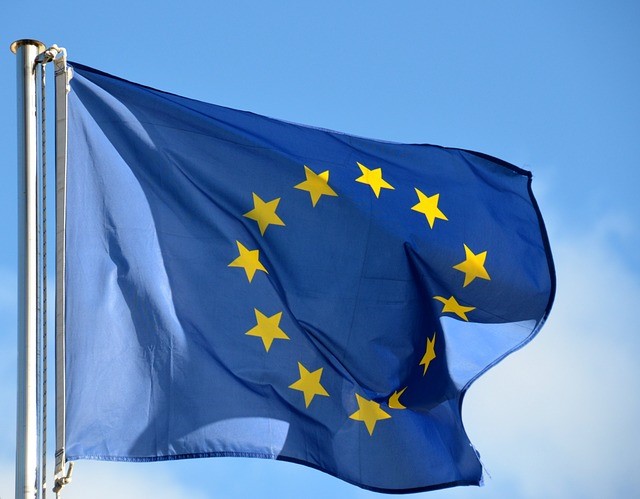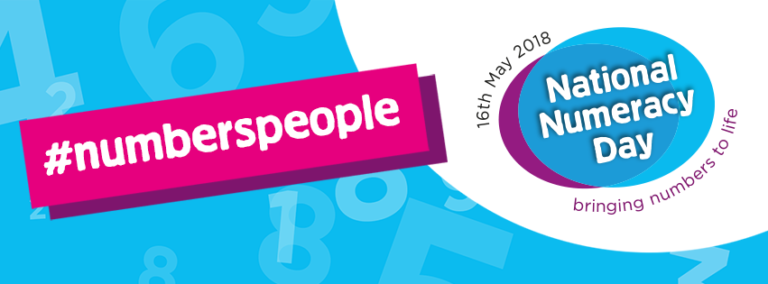Welcome to the May edition of the Advice Skills Academy newsletter. This month we’ve got bitesize learning on the Big Think, Brain Pickings, and another useful IT bitesize – this time it’s 20 Excel tricks.
It’s Learning at Work Week during May, and in the same week it’s the first ever National Numeracy Day. There’s a host of other awareness days, weeks and months in May, including Europe Day, Mental Health Awareness week, and National Walking Month.
Learn Something Today
This Month’s Latest Bitesize Learning
The Big Think is a website and newsletter that has a range of articles, and podcasts on a range of topics that help to give people free access to big ideas:
“…from astrophysics and entrepreneurship to relationships and religion. The bigger the idea, the better.”
The website contains sections on: surprising science; personal growth; mind & brain; sex and relationships; technology and innovation; culture and religion; and politics and current affairs. For a selection of some of the articles available on the website see the links below:
People with depression use language differently – here’s how to spot it
Creativity is a distinct mental state that you can train
How to test your emotional intelligence and use it to improve your life
Ever wondered how to select all your data with 1 click or switch between spreadsheets quickly? Learn how to speedily move and copy data in Cells or move a whole column in one go, or even learn more advanced tricks which may help you in your day to day Excel spreadsheet work.
This excellent blog on lifehack.org can help you improve existing or learn new Excel spreadsheet skills with these 20 top tricks and tips.
Curated and written by Maria Popova, the Brain Pickings website has a range of articles on writers, science, children’s books and how to live a meaningful life.
Started as a way of sparking curiosity, and sparking creativity amongst her work colleagues in an advertising agency (by sharing meaningful information that wasn’t related to advertising) Popova emailed colleagues with links and references to art, science and other areas of interest, in an effort to encourage people to read more about areas outside of their industry. The popularity of the emails spurred Popova on to creating a blog that people could use as a source of self-directed learning.
Brain Pickings is now a website, newsletter and twitter feed, with over a million readers a month. For a sample of articles visit the links below, or if you like some of the articles why not sign up to the newsletter?
Fixed vs Growth: The two basic mindsets that shape our lives
The science of stress and how our emotions affect our susceptibility to burnout and disease
The temple of knowledge: an animated celebration of how libraries change lives
14 to 20 May 2018 is Learning at Work Week. Learning at Work Week is an annual celebration of the importance and benefits of learning and development in work.
Organised by the Campaign for Learning, Learning at Work Week is an opportunity for organisations to run activities for their staff and volunteers, which can be fun activities, bitesize learning, to more work focused workshops and training courses.
National Numeracy Day
16 May - Bringing Numbers To Life
It’s estimated that 1 in 2 working-age people have numeracy levels that we would associate with primary school children. It’s never too late to learn though – being better with numbers isn’t a special talent, it’s something we can all learn.
You can check your numeracy skills by using the free online tool.
16 May 2018 sees the first National Numeracy Day taking place. The new annual celebration will be an opportunity to celebrate the importance of numbers in everyday life, and will bring together individuals, employers, educators and influencers to improve numeracy.
National Walking Month
National Walking Month is in May, and is used as an opportunity to promote the benefits and joys of walking. The month aims to encourage and support people to walk more, no matter what their level of fitness is. Walking is free, and is one of the easiest ways to get fitter, lose weight, and be more active.
For ideas on ways you can get involved in National Walking Month have a look at the Living Streets, and British Heart Foundation websites:
https://www.livingstreets.org.uk/what-you-can-do/campaigns/national-walking-month-2018
https://www.bhf.org.uk/get-involved/fundraising/just-walk/national-walking-month

Europe Day - 5 May and 9 May
There are 2 dates celebrated for Europe Day, 5 May is the annual celebration for the Council of Europe, and 9 May is the European Union (EU) celebration.
The Council of Europe was founded on 5 May in 1949, and has 47 member states. Unlike the EU, the Council of Europe can’t make binding laws. The European Court of Human Rights is the best known body of the Council of Europe, and is one of the ways that the Council of Europe enforces the European Convention on Human Rights. Some people prefer to celebrate Europe Day on 5 May, as the Council of Europe plays a key role in defending human rights, parliamentary democracy, and the rule of law.

9 May is Europe Day for the European Union, which tends to have a higher profile than 5 May celebrations. Europe Day is also the EU’s Flag Day, when the blue and yellow flag of the EU is flown and used to celebrate Europe Day. Many EU buildings are open to the public, and there are debates, music and other events to celebrate the day. The 9 May celebration is often see as an opportunity to teach people about the European Union, and European integration.
Needless to say, with Brexit looming, this year could be the last opportunity to celebrate Europe as part of the EU.
https://www.coe.int/en/web/portal/5-may-europe-day
https://europa.eu/european-union/about-eu/symbols/europe-day_en
Mental Health Awareness Week - 14 May to 20 May
14 to 20 May is Mental Health Awareness week, and this year the week is focusing on stress. Research indicates that stress can play a part in mental health problems. Whilst stress isn’t a mental health condition itself, it can impact on people’s mental health, and can exacerbate things like depression and anxiety. Around 16 million people experience a mental health problem each year, and stress can be a key factor in this.
For more information on Mental Health Awareness week, including how to get involved, events and activities, and information on stress, visit the Mental Health Foundation website:
https://www.mentalhealth.org.uk/campaigns/mental-health-awareness-week
Deaf Awareness Week - 15 May to 21 May
Around 1 in 6 people in the UK are affected by hearing loss – that’s about 11 million people. Most of these people are over 60 (about 6.5 million), but hearing loss can affect people of any age, with 4.5 million people under 60 affected.
Hearing loss is sometimes sudden, but often it’s gradual. There are approximately 3.5 million people of working age who have hearing loss, with about 2 million people using hearing aids.
For more information on hearing loss, including events, activities and ways you can get support, visit the Action on Hearing Loss website:
Dementia Action Week - 21 May to 27 May
Dementia is an umbrella term used to describe a range of disorders affecting the brain. Alzheimer’s is the most common form of dementia, but there are many different types of dementia. It’s estimated that there are over 850,000 people living with dementia in the UK. Of these, 42,000 are people with young onset dementia, which affects people under the age of 65.
This year, Dementia Awareness Week is changing to Dementia Action Week, to encourage people to help make change happen for people affected by dementia. From becoming a Dementia Friend to helping to raise funds, there are plenty of ways to get involved during the week. For more information on Dementia Action Week visit the Alzheimer’s Society website, or the Dementia UK website:
World Hunger Day - 28 May
World Hunger Day is on 28 May, and this year the day is focusing on the causes of chronic hunger.
More than 795 million people in the world don’t have enough food. Chronic hunger is defined as not ingesting enough energy to lead a normal, active life.
Chronic hunger is a symptom of poverty, which can be caused by social inequalities and things like lack of women’s empowerment (60% of the world’s hungry are women), climate change, and lack of education and literacy.
World Hunger Day is organised by the Hunger Project, which is striving to end hunger through empowering people, to help them lift themselves, and their communities, out of hunger and poverty for the long term.
For more information on how you can get involved visit the World Hunger Day website or social media links:




